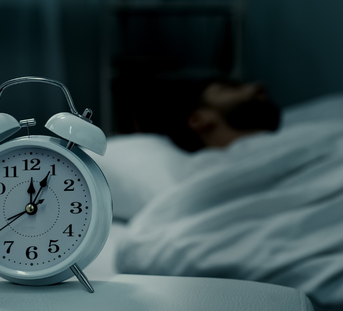Sleep is essential for our overall health and well-being, yet many people struggle with sleep issues such as insomnia, sleep apnea, restless leg syndrome, and more.
If you find yourself tossing and turning at night, it's time to take steps towards improving your sleep.
Let's explore practical tips, natural remedies, and relaxation techniques to help you achieve the restful slumber you deserve.
Sleep Hygiene
Sleep hygiene involves creating a sleep-conducive environment and adopting healthy sleep habits. Here are some tips:
- Set a regular sleep schedule, even on weekends.
- Create a comfortable and dark sleeping environment.
- Avoid stimulating activities before bedtime, such as watching TV or using electronic devices.
- Limit caffeine and alcohol intake, especially in the evening.
- Exercise regularly, but not too close to bedtime.
Natural Remedies, Supplements, and Herbs
In addition to good sleep hygiene, some supplements, creams, and sprays can be beneficial:
- Melatonin: Melatonin is a natural hormone that helps regulate your sleep-wake cycle. Consider melatonin supplements if you have trouble falling asleep. Consult a healthcare professional for the appropriate dosage.
- Lavender essential oil: Diffusing lavender oil or using it in a pillow spray can promote relaxation and improve sleep quality. The soothing aroma of lavender is known to reduce stress and anxiety, aiding in better sleep.
- Valerian root: Valerian is an herb known for its sleep-inducing properties. You can find it in capsule or tea form. Valerian root can help with insomnia and promote deeper sleep. It's advisable to consult a herbalist or healthcare provider for proper usage.
- Magnesium: Magnesium can relax muscles and promote better sleep, especially for those with restless leg syndrome. Magnesium plays a crucial role in muscle and nerve function, and a deficiency can lead to sleep disturbances. It is available in supplements as well as creams.
- Chamomile: Chamomile is a soothing herb that can be brewed into a tea. Its calming effects help reduce anxiety and promote better sleep. Sip on a cup of chamomile tea before bedtime for a peaceful night's rest.
- Passionflower: Passionflower extract is known to alleviate insomnia and anxiety. It works by calming the nervous system, making it easier to fall asleep and stay asleep.
- Lemon balm: Lemon balm tea can improve sleep quality and reduce symptoms of insomnia. This herb has a mild sedative effect and is a popular choice for those looking for a natural sleep aid.
Dealing with Sleep Disorders
If you suspect you have a sleep disorder like sleep apnea or restless leg syndrome, it's crucial to seek professional medical advice. Proper diagnosis and treatment can significantly improve your sleep and overall health.
If you would like to learn more about how herbalism can support a sleep disorder, why not book a free 1:1 consultation with our team of herbalists here?
Relaxation Techniques
For those who struggle to unwind, incorporating relaxation techniques can be highly effective:
- Practice deep breathing exercises.
- Listen to relaxing music for sleep or white noise.
- Consider using a sleep mask to block out light.
Getting better sleep is within your reach by following these tips and exploring natural remedies. Prioritise sleep hygiene, consider supplements, herbs, and relaxation techniques, and seek professional help for sleep disorders. With a little effort, you can enjoy restful nights and wake up refreshed, ready to tackle each day.



